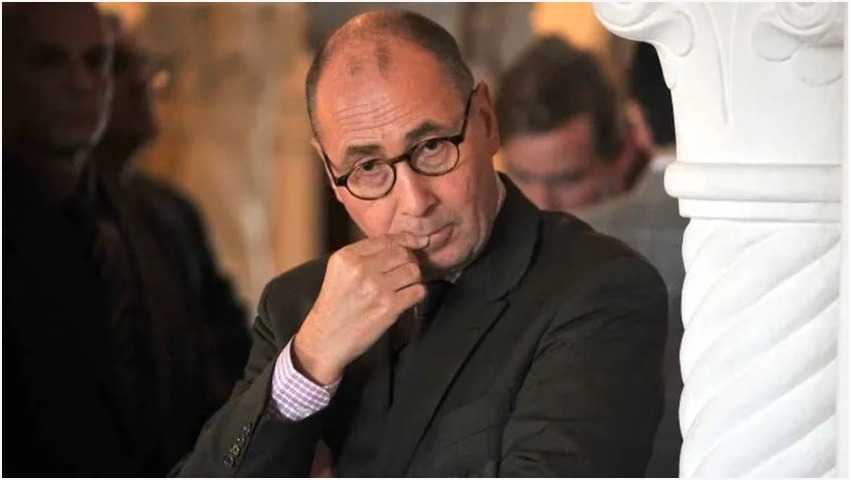
In a note published in June 2023, entitled “Emmanuel Macron’s Algerian bet: illusions, risks and errors”, Xavier Driencourt, former French ambassador to Algiers, deplores the cooling of relations between France and Morocco due Macron’s Algerian tropism which led him to a losing bet.
Speaking within the framework of the Thomas More Institute, a free and independent think tank based in Brussels and Paris, Xavier Driencourt wonders in this new note about the reasons which push the President of the French Republic, Emmanuel Macron, to persist in its valorization of a relationship between France and Algeria, on the advantages that France would derive from it, even though the Algerian regime multiplies the hostile signals towards it, from the introduction of the anti-French couplet to its national anthem to Abdelmadjid Tebboune’s recent visit to Moscow.
For the former diplomat, it is clear that ” French policy vis-à-vis Algiers has lacked a guideline since 2017 ” and that ” between firmness assumed for a short time and proclaimed friendship, this winding policy, while uncertain oscillations, is basically not a policy. It is really a bet ”.
This more than uncertain bet, based on ” illusions, errors of analysis and not insignificant political and geopolitical risks “, for which ” the stake is maximum, but the chances of winning minimal “, thus presents little advantages for France on key issues, believes Xavier Driencourt. ” Nothing about the military relationship, probably few things (or always the same) on the economic or commercial level, difficulties to be expected with regard to immigration, little about the Sahel”, he lists.
Not to mention, says the author of “L’énigme algérienne. Chroniques d’une ambassade à Alger” (Éditions de l’Observatoire, 2022), that France’s complicit silence in the face of Algerian domestic policy, its attacks on freedoms and its brutal treatment of those who speak out against the current regime, reinforces Algiers’ certainty: “We know that France is betting on Algeria and on Abdelmadjid Tebboune, whom we will support if he is elected for a second term”.
However, this deliberate choice by France in favor of Algiers resulted in two direct consequences: on the one hand, the mass exodus of many Algerians, “fed up, suspicious or simply worried about the disintegration of the country” and, on the other, the “increasing distance from Rabat”, even if it meant upsetting the balance that France was trying to maintain between the two countries.
Morocco’s position on this French decision was not long in coming. In response to Emmanuel Macron, who described his relations with King Mohammed VI as “friendly” at a press conference at the Élysée Palace on 27 February, an “official source within the Moroccan government” stated in March 2023 in the columns of the magazine Jeune Afrique that relations were “neither friendly nor good, either between the two governments or between the Royal Palace and the Élysée”, recalls Xavier Driencourt.
However, he continues, ” for reasons identical to those which require a normal or at least peaceful relationship with Algiers, France needs a peaceful relationship with Morocco “. Believing that the Algerian bet will exempt France from friendly and substantial relations with Rabat ” is a mistake “, he judges, taking as an example ” the fields (political, security, economic, migratory) on which France must work with the Morocco ” which are not lacking.
This exclusivity of the choice in favor of Algiers made by Emmanuel Macron, even though ” French policy, including in the time of François Mitterrand and François Hollande and obviously under the Chirac and Sarkozy presidencies, was made up of a balance “, reveals the author of the note, somehow lets Morocco ” spin” to other allies or partners, including Spain, the United States, Israel, and China.
At a time when the geopolitical context has changed, international tensions are growing everywhere and anti-Western powers are organizing, France should ask itself “who are ( its) allies, who are (its) friends “, invites the diplomat, because ” at this stage, we have moved away from Morocco and we are not reaping anything, or not much, from our Algerian bet “.
Faced with the Algerian regime, Morocco stands out as the ” most stable country in the region, showing dynamism and an economic strategy offering opportunities that cannot be neglected, aspiring to recognition of its status as a regional power “, analyzes the former French ambassador to Algiers, who does not conceive that France could allow its relationship with Morocco to deteriorate further.
Of course, he argues, “certain issues are delicate or thorny, such as migration or the Western Sahara”, but he points out that “merely casting a discreet veil cannot be a solution”, and that France “must take the initiative again. Perhaps not alone, but by considering a new approach”.
This would consist of reaching an agreement with Spain and Italy, ” faced with the same problems as France (migration crises, security, energy supplies, the Sahel, economic issues) ” and facing the three Maghreb countries (Algeria, Morocco, Tunisia). It would thus be a question of ” trying to warm up our relationship with Rabat, helping dialogue between Madrid and Algiers (who have today frozen their relations) and, who knows, facilitating discussion between Morocco and Algeria” .
In conclusion, the former French diplomat wondered why the President of the Republic persists on a path that, to all appearances, is a dead end. The explanation, according to Xavier Driencourt, may ultimately lie in the domestic politics of each of the two countries.

